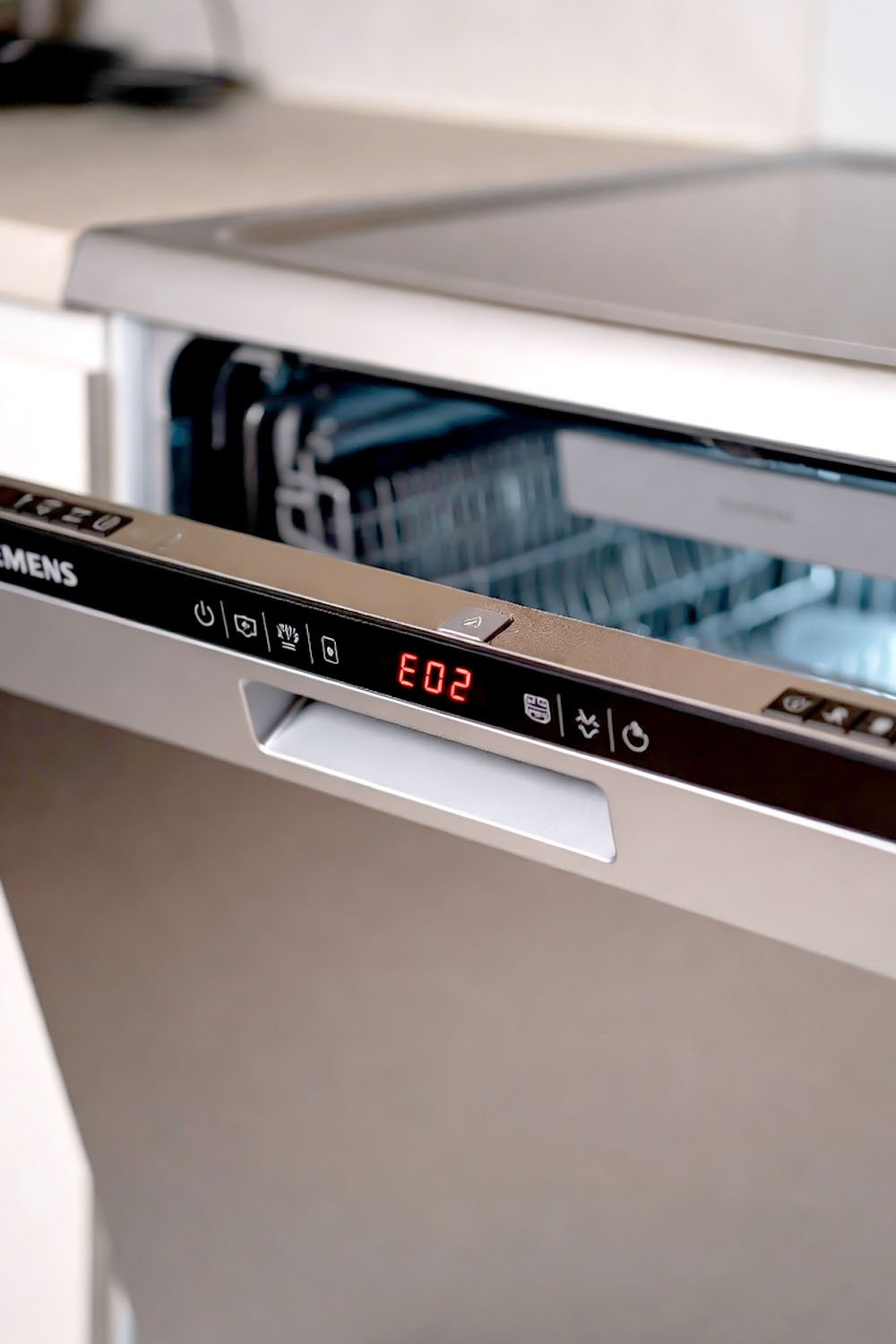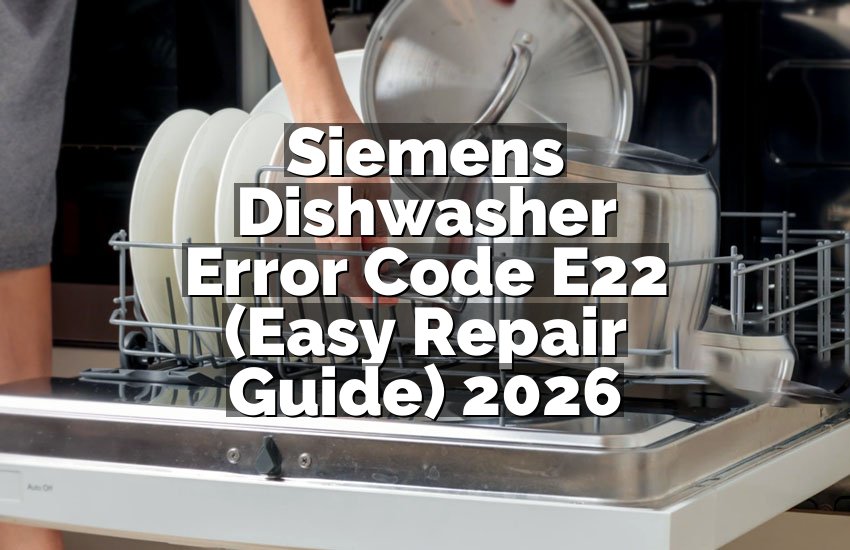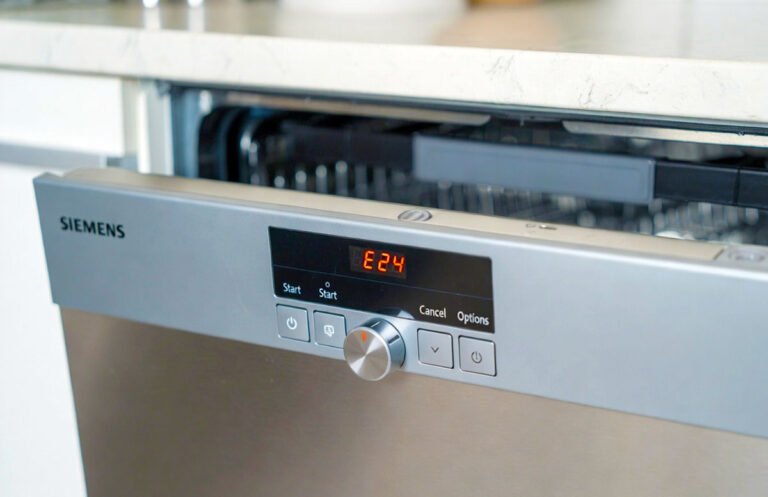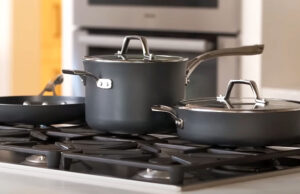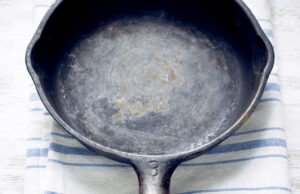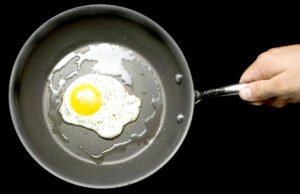As an Amazon Associate, I earn from qualifying purchases at no extra cost to you.
Siemens Dishwasher Common Problems: Fix All Issues Fast Today
If your Siemens dishwasher is giving you trouble, you are not alone. Many people face the same problem. The good news is that most problems have simple fixes. You do not always need a repairman. In this article, you will learn the most common Siemens dishwasher problems and how to fix them in the easiest way.
Dishwasher Will Not Start
When your Siemens dishwasher does not start, it can feel stressful. You press the button, but nothing happens. This usually means there is a power issue or a locked control panel. The first thing you should always do is check the plug and the outlet. Many people forget to see if the power cord is loose or the breaker is off.
Sometimes, the dishwasher door is not closed fully. Siemens dishwashers have a safety lock that stops the machine if the door is not tight. You should push the door until you hear a click. Also, check if the child lock feature is on. This small setting can block all buttons and make it look like the machine is dead.
Another reason can be the control board. If it has a fault, the machine will not respond. Before calling a technician, try resetting the dishwasher. You can do this by pressing and holding the start button for a few seconds. The system will reset and may solve the problem.
It is also smart to check the fuse or circuit breaker in your home. Dishwashers use a lot of power, so they often trip the breaker. If this happens often, the machine may need its own dedicated circuit. Always make sure electricity is steady before starting the machine.
- Check power plug and outlet
- Close the door until it clicks
- Make sure child lock is off
- Try a reset with start button
- Inspect fuse and breaker
Dishwasher Not Cleaning Dishes Properly
If your Siemens dishwasher is not cleaning well, it can be very annoying. You open the door and find dirty plates still inside. The first reason is often a blocked spray arm. Food bits and grease can clog the holes. When water cannot flow, dishes do not get clean. You should remove the spray arm and wash it under running water.
Another reason can be too much food left on dishes. A dishwasher is not a garbage bin. Scrape large food pieces before loading. This makes cleaning much better. Also, overloading the dishwasher is a common mistake. If dishes are stacked too close, water cannot reach every spot. Always leave space between items.
Detergent use is also very important. Using the wrong type or too little detergent makes cleaning weak. Siemens recommends special dishwasher tablets or powders. Make sure you are not using normal dish soap because it will not work. Hard water can also cause poor cleaning. In that case, use dishwasher salt to soften the water.
The filter at the bottom is another part to check. If the filter is dirty, water cannot flow well. Clean the filter once a week for best results. After that, run a hot wash cycle without dishes once a month. This keeps the inside clean and removes grease buildup.
- Clean the spray arm holes
- Scrape large food before loading
- Do not overload dishes
- Use the right detergent and salt
- Clean the filter weekly
Dishwasher Not Draining
A Siemens dishwasher that will not drain can be very frustrating. You may see standing water at the bottom after the cycle. This usually means the filter or drain hose is blocked. Start by removing the bottom filter and cleaning it. Food scraps often collect here and block water flow.
Next, check the drain hose. If the hose is bent, twisted, or clogged, water cannot leave. Remove it carefully and flush it with water. Also, make sure the hose is placed correctly at the back. If it is too high or too low, draining will not work right.
Another possible cause is the pump. The drain pump pushes water out, but it can get stuck with dirt or glass pieces. Listen closely during draining. If you hear humming but no water moves, the pump may be blocked. Remove small items stuck inside and try again.
Also, check the sink connection. Many dishwashers are linked to the sink drain. If the sink itself is clogged, then the dishwasher cannot drain either. Cleaning both will often fix the issue. If you try all this and water still does not drain, then you may need a professional.
- Clean the bottom filter
- Inspect and straighten the drain hose
- Flush hose with water
- Check the drain pump for blockages
- Clean sink connection too
Dishwasher Making Strange Noises
Strange noises from your Siemens dishwasher can be worrying. You might hear banging, buzzing, or grinding. Not all noises mean something is broken. Dishwashers make some normal sounds during cycles. However, loud or unusual noises usually mean there is an issue.
One common cause is loose dishes. Plates or pans may hit each other during washing. Always load dishes carefully and make sure nothing blocks the spray arm. If the spray arm hits a spoon or a pan handle, it makes a loud knocking sound. Adjust items so the arm spins freely.
A buzzing sound can come from the pump. The pump works hard to push water in and out. If debris is stuck inside, it will buzz or grind. Clean the filter and pump area to stop this. Sometimes, a hard object like a piece of glass or bone gets stuck and causes grinding.
Another source of noise can be the inlet valve. This is the part that lets water enter. If it is old or worn, it can make a loud humming. Replacing it is often the best fix. Also, make sure the machine is standing level. If it shakes, it will be much noisier than normal.
- Do not overload or block spray arm
- Remove any small items stuck inside
- Clean pump and filter area
- Check inlet valve condition
- Level the dishwasher properly
Dishwasher Leaking Water
Water leaks from a Siemens dishwasher are never a good sign. A small puddle near the machine means something is wrong. Many times, the door seal is the problem. If the rubber seal is dirty or damaged, water escapes. Clean the seal with a damp cloth and check for cracks.
Another common cause is too much detergent. If you use the wrong kind or too much, foam builds up and leaks. Always use dishwasher detergent only. Never use liquid soap, as it makes bubbles that overflow. Also, check that you are not overfilling the salt or rinse aid compartments.
Leaking can also come from the hose connections. Both the inlet and drain hoses must be tight. If they are loose or cracked, water will drip. Look behind the dishwasher and check carefully. Replace any damaged hoses right away.
Sometimes the dishwasher leaks because it is not level. If it leans forward, water may spill out. Use a small tool to adjust the legs until the machine is stable. If leaks continue after all checks, then the internal parts like the pump or tank might be cracked. In that case, you need expert help.
- Clean and inspect door seal
- Use correct detergent only
- Check hose connections
- Adjust dishwasher level
- Replace damaged parts if needed
Dishwasher Leaving White Marks
White marks on dishes after washing are a very common Siemens dishwasher issue. These marks are usually from hard water. When water has too many minerals, it leaves spots and films. Using dishwasher salt is the easiest fix. Salt softens the water and stops spots from forming.
Another reason can be too much detergent. When detergent does not dissolve fully, it leaves streaks and white powder. Make sure you use the right dose. Also, do not overload the dishwasher. If dishes are too close, detergent cannot spread well and leaves marks.
Rinse aid is another key product. It helps water slide off dishes smoothly, leaving them shiny. Without rinse aid, dishes often dry with streaks. Always keep the rinse aid compartment filled. Adjust the rinse aid setting if marks still appear.
Sometimes the filter or spray arms are dirty. When water flow is blocked, detergent does not rinse away fully. Clean these parts often. Also, run a hot empty cycle with a cleaner once a month. This removes grease and mineral buildup from inside the machine.
- Add dishwasher salt for hard water
- Use the right detergent dose
- Do not overload the dishwasher
- Keep rinse aid filled
- Clean filter and spray arms often
Final Thoughts
Siemens dishwashers are strong machines, but they can still face problems. The good news is that most of these problems have simple fixes you can try at home. By checking power, cleaning filters, using the right products, and keeping the machine clean, you can avoid costly repairs and keep it running for years.
| Problem | Common Fixes |
|---|---|
| Will not start | Check power, close door, reset |
| Not cleaning | Clean spray arms, use right detergent |
| Not draining | Clean filter, flush hose, check pump |
| Strange noises | Adjust dishes, clean pump, level machine |
| Leaking water | Clean door seal, check hoses, use right detergent |
| White marks | Add salt, use rinse aid, clean spray arms |
Frequently Asked Questions (FAQs)
Is it normal for my Siemens dishwasher to smell bad?
No, bad smells are not normal. They usually come from old food trapped in the filter or hidden parts. Cleaning the filter, spray arms, and inside walls can help. Also, run a hot cycle with a cleaner once a month. Do not leave dirty dishes sitting for days because that makes smells worse. Keeping the door slightly open between washes also helps stop bad odors.
Can I fix a Siemens dishwasher that does not dry dishes?
Yes, you can often fix this. If dishes stay wet, check if the rinse aid is filled. Rinse aid helps water dry off faster. Also, do not overload the dishwasher, because dishes need space for air to flow. Try using a hotter wash setting too. If the problem continues, the heating element may be faulty and needs a technician.
Do I need to scrape dishes before loading a Siemens dishwasher?
Yes, you should scrape large food pieces before loading. A dishwasher is not made to handle big chunks of food. Scraping prevents clogs in the filter and spray arms. However, you do not need to wash dishes fully. Just remove the extra food and load them. This makes cleaning easier and keeps the machine running smoothly for a long time.
Is it safe to use normal dish soap in a Siemens dishwasher?
No, it is not safe at all. Normal dish soap makes lots of foam, which can cause leaks and damage. Always use special dishwasher tablets or powder made for dishwashers. These dissolve correctly and clean dishes well. Using the wrong soap can also leave sticky marks on dishes and may harm the pump or hoses. It is always best to follow the manual.
Can I run my Siemens dishwasher without rinse aid?
Yes, you can, but your dishes may not look clean. Without rinse aid, water leaves spots and streaks. Glass items often look cloudy. Rinse aid is not just for shine, it also helps dishes dry faster. So even though the dishwasher will run, results will not be as good. Always keep rinse aid filled for the best outcome.
Do I need to clean the Siemens dishwasher filter often?
Yes, you should clean the filter at least once a week. The filter collects food bits during washing. If you do not clean it, water flow gets blocked and dishes will not come out clean. A dirty filter also causes bad smells. Just remove it, rinse under water, and put it back. Regular filter cleaning makes a big difference in performance.
Is it okay if my Siemens dishwasher runs for a long time?
Yes, dishwashers often run longer than people expect. Modern machines use less water and power, but they clean slower. Long cycles are normal, sometimes lasting two to three hours. If the dishwasher cleans well, there is no need to worry. Only check if it runs much longer than usual without stopping. That might mean a sensor or heating issue.
Can I prevent white marks on my Siemens dishwasher glasses?
Yes, you can prevent white marks with simple care. Always use rinse aid and dishwasher salt, especially if you live in a hard water area. Also, use the right detergent dose and do not overload the dishwasher. Clean the spray arms and filter often so water flows properly. Doing this will keep glasses clear and shiny after every wash.

